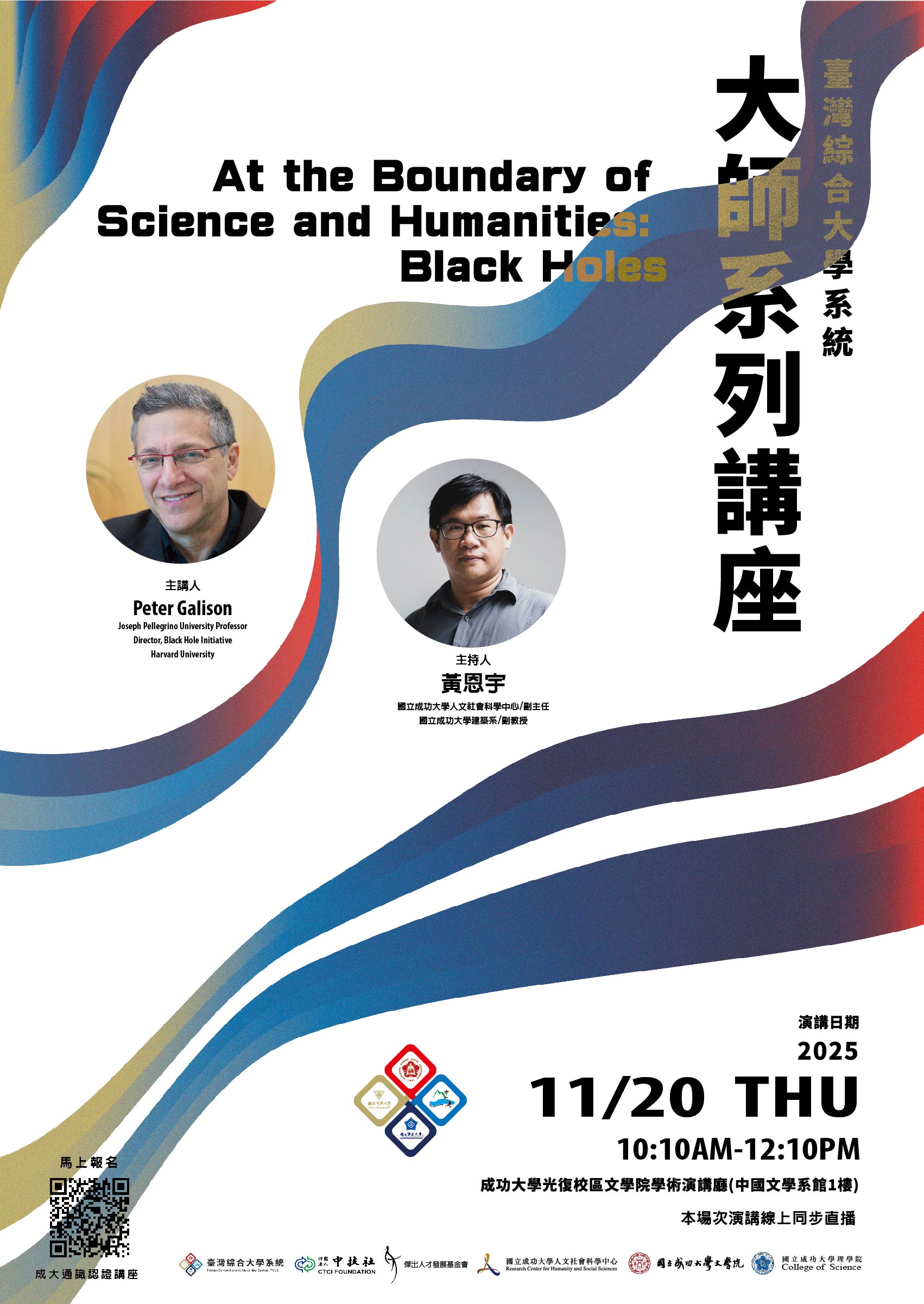活動快訊 | 11/20(四) 哈佛大學大師演講【At the Boundary of Science and Humanities: Black Holes】
【講者簡介】
Peter L. Galison(1955年生)是美國當代最具影響力的科學史與科學哲學學者之一,目前擔任哈佛大學 Joseph Pellegrino 大學講座教授,在物理系與科學史系皆設有教職。他的研究橫跨物理學、歷史學、哲學、科學文化與電影創作等,致力於探討科學實作(scientific practice)與科學影像如何塑造人類對真理與客觀性的理解。Peter L. Galison 在哈佛大學取得雙博士學位(物理學與科學史),曾任教於史丹佛大學,1992年回到哈佛。
【演講大綱】
It is too easy—and false—to see the humanities and sciences as opposed. Cutting-edge practices of both need and inform one another. The Black Hole Initiative (BHI) at Harvard has, over the last decade, brought together mathematics, physics, astronomy, history and philosophy, around these massive distortions of space and time. One key project, the Event Horizon Telescope, united radio telescopes across the planet, its first image seen by a billion people.
With plans to add ten such instruments, responsible siting is key. One of our history/philosophy/culture groups addresses just this. Success depends on engaging local communities across the Pacific, the Americas, and Africa. Scientific epistemology is another shared concern: What constitutes a robust image of a supermassive black hole? Here too humanities and astrophysics converged around the history and philosophy of scientific objectivity.
Another example, film: Might documentaries extend beyond traditional aims of popularizing education; could there be epistemological film—capturing science and technology during their unfolding? How is knowledge secured in an all-too human world? Black holes are objects of equations and code, but they also resonate culturally as symbols of passage from life to death. Such films aim to render science as central to culture, shaped by cognition and affect.
👉👉👉【馬上報名】有通識認證
👉👉👉【直播網址】https://reurl.cc/xKE0Qb

瀏覽數:
分享